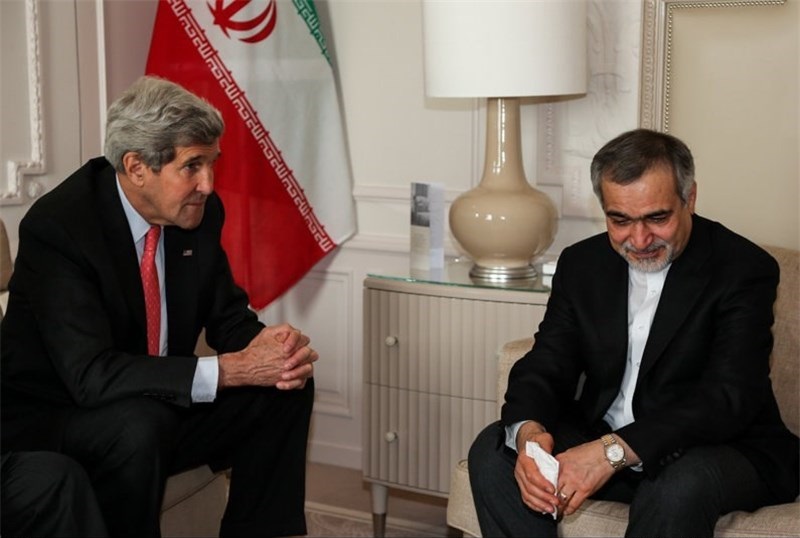Iranian President Hassan Rouhani’s brother, who was arrested and charged with financial-related crimes charges on July 15, has been released from custody on bail and transferred to a hospital after appearing in court.
“The president’s brother encountered a health problem and was transferred to a private hospital, north of Tehran immediately,” Director of the Public Relations Department of the Tehran Emergency Center Hassan Abbasi told Iran’s state-run IRNA news agency on Monday.
According to the Iranian Tasnim news website, Rouhani’s brother Hossein Fereydoun appeared in court on Monday but was transferred to a hospital after feeling ill. Bail was initially set for $13.3 million, but the court agreed to reduce the amount to $8.3 million.
Fereydoun was arrested Saturday and allowed to be released after posting bail, but because he failed to pay he had been taken to jail. Judiciary spokesman Gholamhossein Mohseni Ejei had said that Fereydoun could be released if he secures bail, pending trial.
Fereydoun, who has acted as a key advisor to Rouhani, is accused of violations that allegedly took place in 2016 and include receiving zero-interest loans, money laundering and misappropriating state funds, as well as influencing the appointment of a bank director who Rouhani had dismissed for being paid an exceptionally large salary.
His arrest comes on the heels of the two year anniversary of the signing of the Joint Comprehensive Plan of Action (JCPOA), better known as “the nuclear agreement,” which eased nuclear-related sanctions on Iran in exchange for Tehran curbing uranium enrichment. The deal, reached with the UN Security Council member countries plus Germany, was negotiated in part by Fereydoun.
The deal was unpopular among Iranian conservative politicians, known as Principlists, who have been critical of Rouhani’s efforts to woo foreign investors. They believe Rouhani, who was elected to a second and final four-year term in May and is considered a moderate and a reformist, is selling off Iran’s resources to the West.
Some are at odds with Rouhani over his stance on opposition leaders currently in prison. In May, the head of Iran’s judiciary Ayatollah Sadegh Amoli Larijani slammed Rouhani for his campaign promise to free the leaders of the reformist opposition Green Movement. After the 2009 presidential election, which led to the re-election of Ahmadinejad, reformist candidates Mir Hossein Mousavi and Mehdi Karroubi objected to the results, called for protests across Iran. The two opposition leaders were put under house arrest in 2011.
Rouhani has harshly criticized the Islamic Revolutionary Guards Corps (IRGC), a key conservative establishment in Iran, for its influence on the economy. The IRGC was founded as a branch of Iran's Armed Forces after the 1979 Iranian Revolution but has increasingly taken a more assertive role in Iranian society.
Before Rouhani, during the presidency of hardliner Mahmoud Ahmadinejad between 2005-2013, the IRGC assumed a dominant role in the Iranian economy, essentially controlling the petrochemical, banking, construction, media, and telecommunications sectors. The IRGC is estimated to own at least half of Iran’s state-owned companies and control 68 percent of Iran’s total exports.







 Azerbaijan and Armenia started the process of demarcation of their border on Tuesday, with the installation of the first border markers based on ge...
Azerbaijan and Armenia started the process of demarcation of their border on Tuesday, with the installation of the first border markers based on ge...
 President Aliyev emphasized the critical role of the North-South Transport Corridor in fostering transport cooperation between Azerbaijan and Russi...
President Aliyev emphasized the critical role of the North-South Transport Corridor in fostering transport cooperation between Azerbaijan and Russi...
 Armenian sappers commenced on Monday mine-clearance operations in the territories adjacent to the Saint Mary Church in village of Voskepar (Armenia...
Armenian sappers commenced on Monday mine-clearance operations in the territories adjacent to the Saint Mary Church in village of Voskepar (Armenia...
 Russian Foreign Minister Sergei Lavrov has reasserted that Moscow has no intentions to stop the fighting in Ukraine, even if peace talks commence.
Russian Foreign Minister Sergei Lavrov has reasserted that Moscow has no intentions to stop the fighting in Ukraine, even if peace talks commence.
 Iran and Pakistan have signed eight cooperation documents in various fields, and agreed to strengthen ties to fight terrorism in the region.
Iran and Pakistan have signed eight cooperation documents in various fields, and agreed to strengthen ties to fight terrorism in the region.



